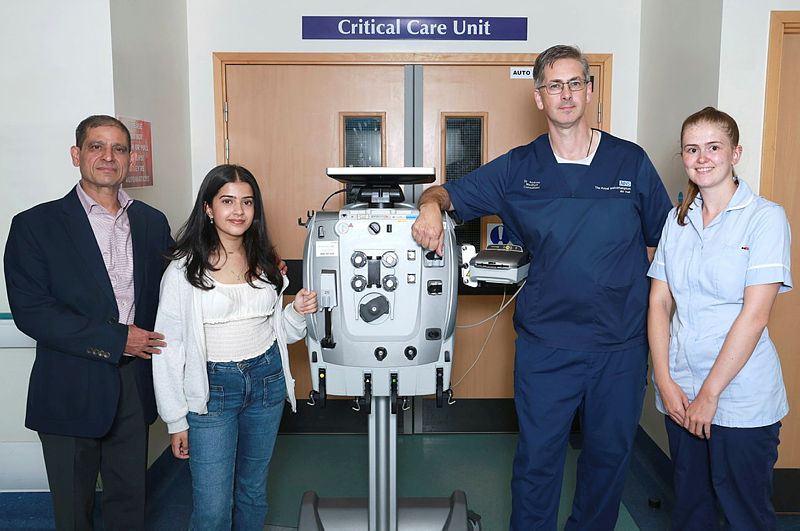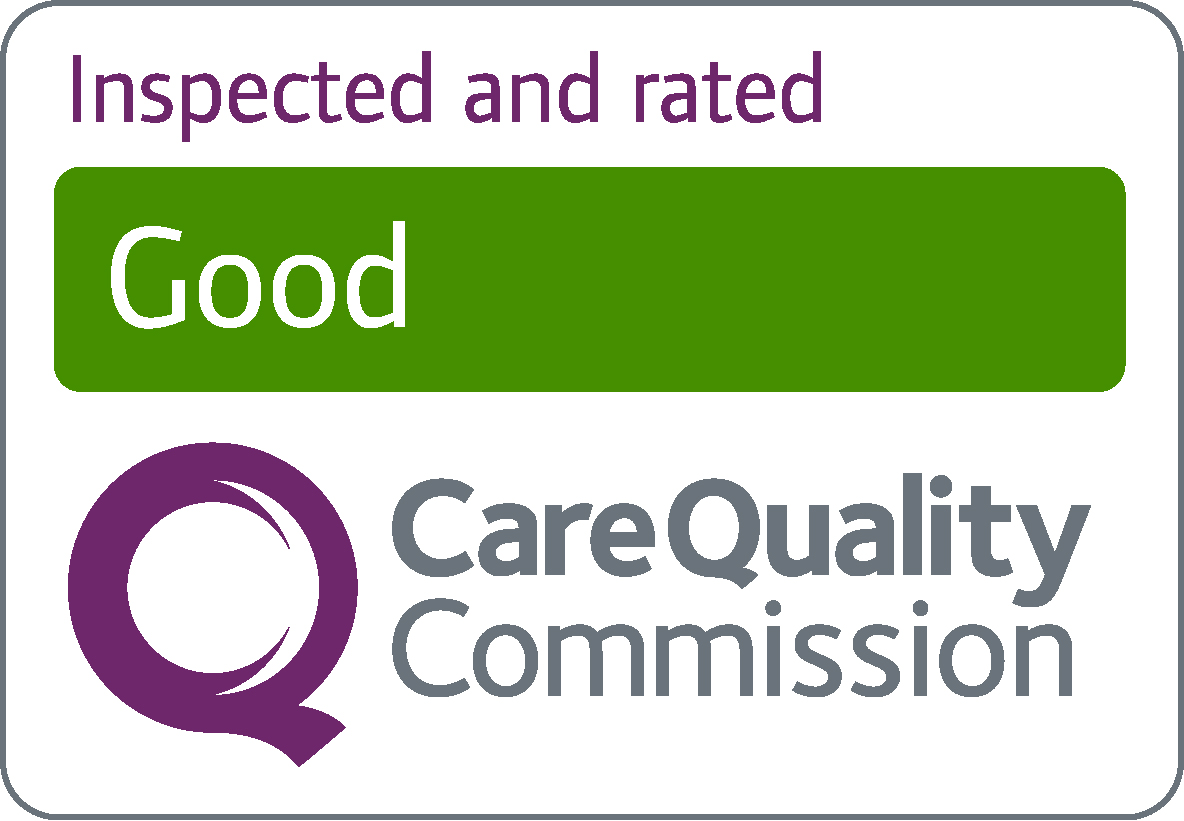Deeksha’s life saved thanks to collaboration
Date of release: 23 September 2024
A grateful patient is off to study at university after life-saving treatment in Wolverhampton to recover from a rare disease, thanks to a West Midlands and international medical collaboration.

From left, Sunil Bali, Deeksha Bali, Dr Andy Macduff and Megan Gillis pictured with the PrisMax system that saved Deeksha's life
Deeksha Bali, 18, from Smethwick, suffered headaches and struggled to walk after contracting a condition which caused seizures and left her unable to breathe or move. She spent a total of 56 days in hospital and had to learn to talk and walk again.
A disease called Autoimmune GFAP Astrocytopathy, or GFAP astropathy, was diagnosed, where the immune system attacks a protein of the nervous system called Glial Fibrillary Acidic Protein (GFAP).
Deeksha’s case was the first one diagnosed in the West Midlands in the last decade, while there have only been two reported cases in the UK in that time.
The clinical immunology service at Birmingham – with confirmation from colleagues from the United States – identified and confirmed the diagnosis in collaboration with Professor Saiju Jacob, Consultant Neurologist (Neuroimmunologist) from University Hospitals Birmingham (UHB), and Dr Suneesh Thilak, Intensive Care Consultant at The Royal Wolverhampton NHS Trust (RWT).
The patient was transferred to New Cross Hospital – part of RWT – for the correct treatment course.
Deeksha was placed into an induced coma, put on a ventilator and had a tracheostomy fitted, along with immunosuppression with steroids to prevent progression of the disease.
She also had a total of six and a half plasma exchanges – where her blood and antibodies were replaced.
These interventions reduced brain inflammation and prevented further damage caused by a misdirected immune response against her brain tissue.
Deeksha had been initially admitted to City Hospital, part of Sandwell and West Birmingham NHS Trust, on 14 June before being transferred to the Integrated Critical Care Unit (ICCU) at New Cross on 7 July.
At New Cross she was placed on the PrisMax system, which filters kidneys and exchanges plasma. Dr Shashi Cherukuri at RWT arranged and expedited plasma exchange when requested at short notice.
During this time, Deeksha was on a ventilator for 14 days before being transferred to C26, a Respiratory recovery ward, prior to being discharged on 9 August.
Dr Andy Macduff, Consultant Intensive Care and Respiratory Medicine at RWT, who oversaw her care, said: “I have never seen a patient with this disease before, but time was of the essence to provide her with aggressive treatment in the intensive care unit.
“Thanks to our colleagues across the West Midlands, Deeksha has made a dramatic recovery, as people with this condition usually get sick for a long time.”
Professor Tonny Veenith, Clinical Director of Research at RWT, said: “This was an excellent collaborative working with various specialities and hospitals in the region and beyond to save Deeksha’s life.
“Complex patients like this requires national and international collaboration between clinicians.”
Dr Simon Ubben, Consultant Neurologist at RWT, who will lead Deeksha’s follow-up care, said: “Our ICCU team did a splendid job stepping in at short notice and providing life-saving treatment for this young patient.
“Prof Jacob deserves huge credit for pointing everyone in the right diagnostic direction in the first place.”
“I’d like to thank everyone involved in my care,” said Deeksha, who passed her A levels and is now preparing to study biochemistry at Birmingham University. “I don’t remember a lot of what happened after I had a seizure during my exams.
“But my care has been excellent. The Doctors and Nurses were always with me; at least one of them would update me on what was happening every day.
“Going from being very mobile and independent to being tired and relying on others is challenging, but I’m getting stronger all the time.”
Megan Gillis, a Staff Nurse at ICCU who looked after Deeksha for five days, said: “When I first looked after Deeksha, she couldn’t move or breathe and was sedated.
“So it’s nice to see her walking and looking so well so soon – it’s a lovely boost for her and us.”
Deeksha’s dad, Sunil Bali, 56, an area conductor manager for West Midlands Trains, said: “It was the worst experience of our lives. After the second round of plasma, Deeksha came round after sedation, couldn’t move, and said, ‘What’s the point, dad?’
“But after the third and fourth rounds, she gradually got better. We are thankful for the excellent care she had.
“Our special thanks to the team at New Cross Hospital, including the consultants and nursing staff who have been excellent, as well as WM Trains, who supported us throughout this difficult time.”
ENDS
- For further information, please call Tim Nash on 07714 741097 or email tim.nash2@nhs.net

